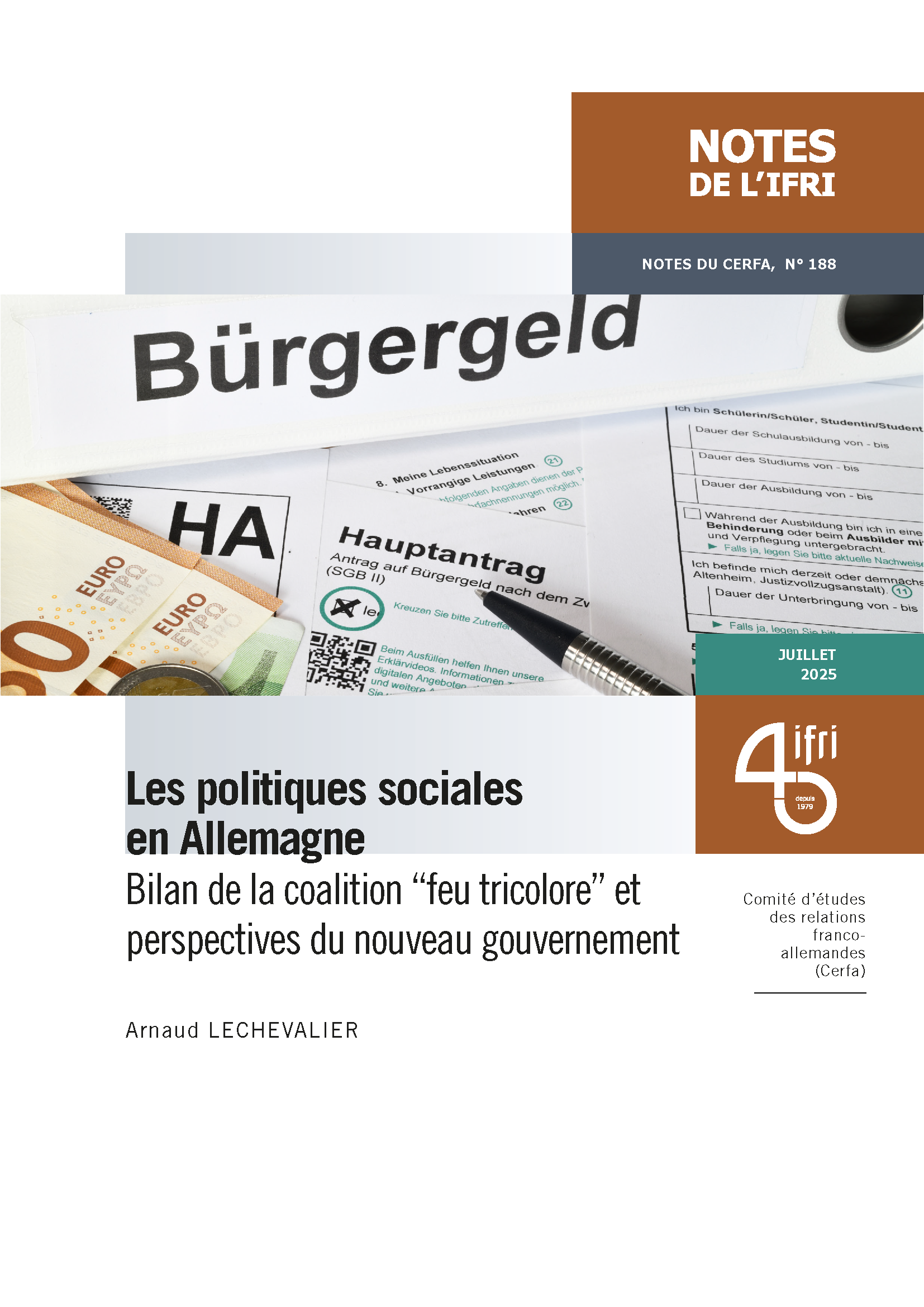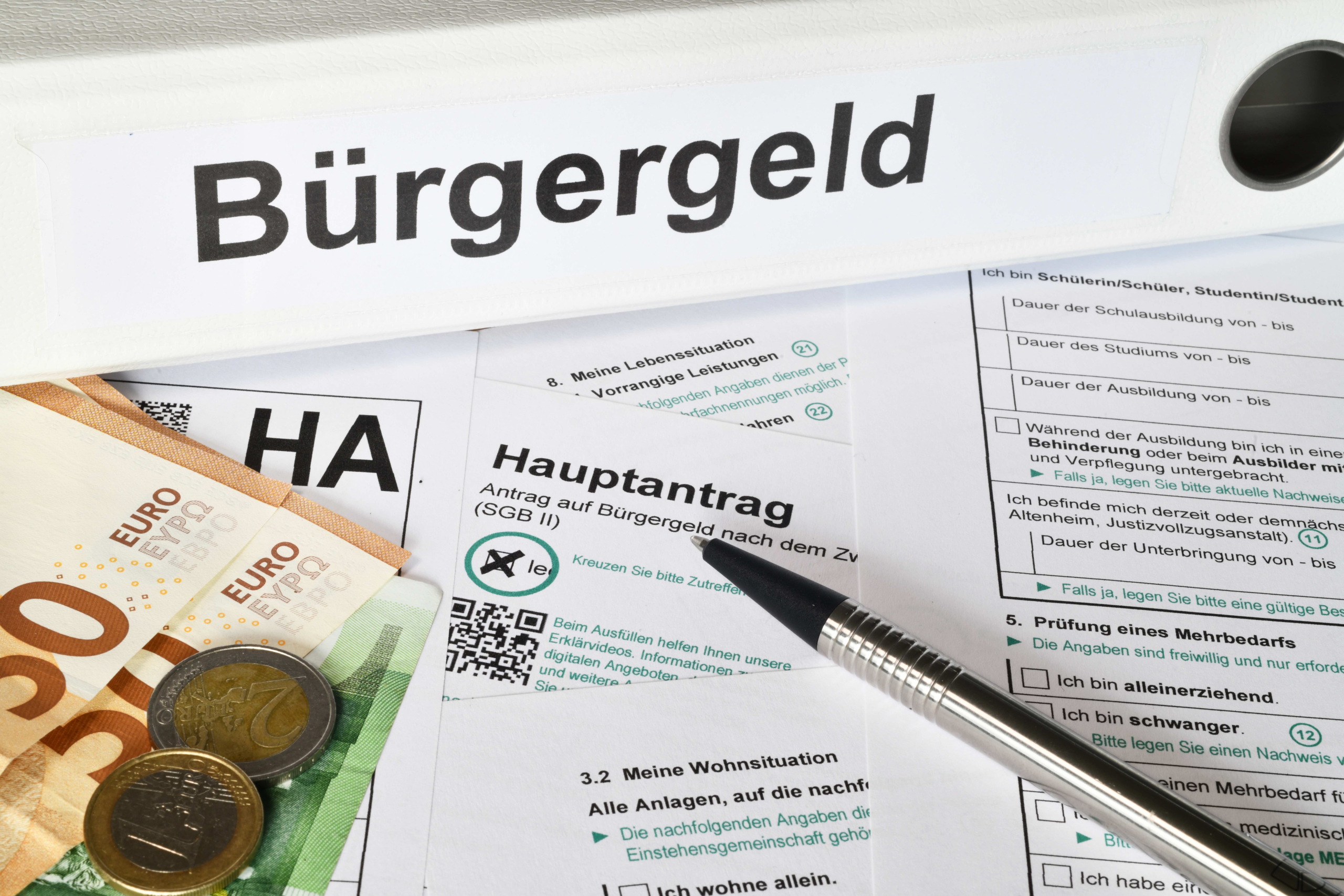Social Policies in Germany. Assessment of the “Traffic Light” Coalition and Prospects for the New Government

Notes du Cerfa, No. 188, Ifri, July 2025 — The defeat of the “traffic light” governing coalition in the snap parliamentary elections of February 2025 calls for an initial – necessarily selective – assessment of the social policies implemented during its term.

The reforms undertaken in this area – both their substance and their limitations – reflect the political tensions and internal power dynamics of this heterogeneous alliance. The management of the energy crisis triggered by Russia’s war of aggression against Ukraine serves as a central starting point. The responses to this crisis deepened fiscal imbalances, hastening the coalition’s collapse in the autumn of 2024. Against this backdrop, several major social reforms deserve particular attention: the increase in the minimum wage, developments in support for the long-term unemployed, and adjustments to the pension and long-term care systems in the context of a rapidly ageing population.
Arnaud Lechevalier is a senior lecturer at Paris 1-Panthéon Sorbonne University, where he teaches economics and sociology, and a researcher at the LISE Laboratory (Laboratoire interdisciplinaire pour la sociologie économique - UMR CNAM-CNRS). For several years, he was visiting professor at the Viadrina European University in Frankfurt (Oder).
- This publication is available in French (PDF): « Les politiques sociales en Allemagne. Bilan de la coalition “feu tricolore” et perspectives du nouveau gouvernement ».

Available in:
Themes and regions
ISBN / ISSN
Share
Related centers and programs
Discover our other research centers and programsFind out more
Discover all our analysesMerz’ European Policy-making: The End of the ‘German Vote’?
Friedrich Merz’s European ambition is to turn Germany, long seen as hesitant into a leading actor within the European Union (EU). To that end, he has pledged to end the “German vote,” a phenomenon that epitomizes the paradox of a country both indispensable and frequently absent from European decision-making.

Securing critical raw material (CRM) value chains – a prerequisite for Europe’s technological resilience
At the heart of economic security, technological resilience is a backbone of the European Union’s (EU) competitiveness. The EU’s energy and digital transitions depend on critical raw materials (CRM).

Reconciling competitiveness and demographic change: a Franco-German imperative
France and Germany are facing parallel demographic shifts that could reshape the future of their economies and their social models. These shifts reflect broader European patterns but are magnified by the central role both nations play in EU governance and competitiveness.
Taking the Pulse: Does France's Political Crisis Weaken Europe's Geopolitical Hand?
While the EU tries to navigate a myriad international challenges, France is experiencing historic political disarray. What impact will instability in Paris have on Europe's geostrategic capacity?







